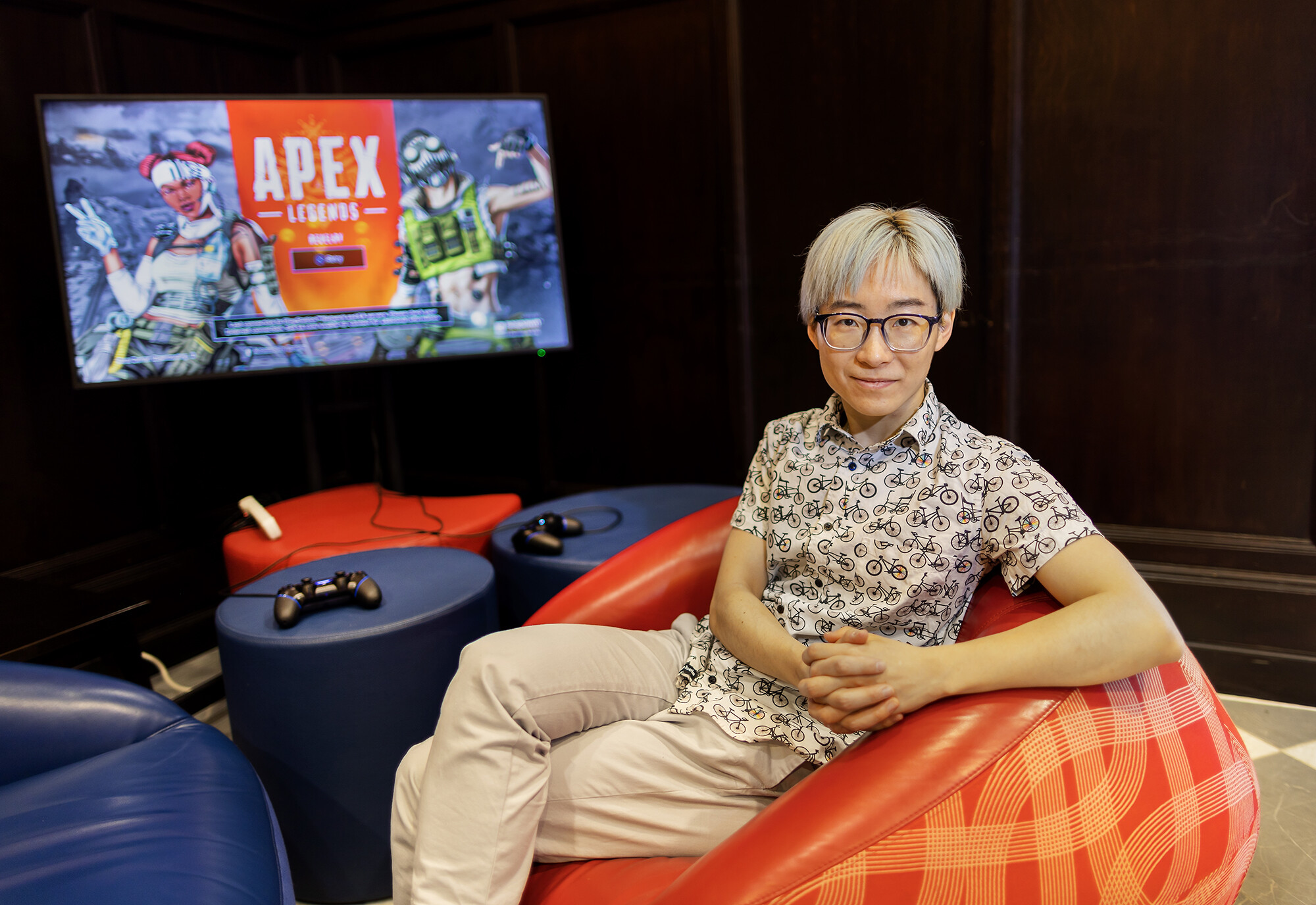
(From left) Doctoral student Hannah Yamagata, research assistant professor Kushol Gupta, and postdoctoral fellow Marshall Padilla holding 3D-printed models of nanoparticles.
(Image: Bella Ciervo)

Mengyang “Zoe” Zhao, a Ph.D. candidate in the Department of Sociology in the School of Arts & Sciences, studies labor related to video games, livestreaming, esports, and care. But she wasn’t always a gamer—or particularly interested in the subject at all.
Growing up in a small city outside of Shanghai, China, she was discouraged from playing video games, as many women continue to be, she says. But in her studies, which spanned statistics at New York University and now doctoral research in sociology at Penn, she realized there exists an unexpected intersection between her work in sociology, technology, and labor activism, and her interest in video games.
Zhao’s aim is to call attention to emerging labor disputes among digital gig workers, who often, she says, are left out of the conversation among NGOs and regulators. After all, many of these institutions are still playing catch-up on gig work that’s created whole new industries of workers since the rise of the smartphone. Think: Uber drivers.
The working conditions for competitive gamers, livestreamers, and any number of adjacent roles, then, are still largely uncovered.
Zhao began doing field work around Shanghai to understand the sociological elements of digital labor and, more importantly, begin to challenge prevailing notions of what is work. particularly, she says, in the tech field.
“I think people might have a stereotypical image of what counts as a worker, so that is why I started to be very interested in tech workers, because of all people nominally associated, like programmers, people think of them as the typical image of a tech worker,” she explains.
Her work analyzes, in a global context, labor markets surrounding video games—typically, players of competitive video games like “League of Legends” or, in China, the popular mobile game “Honor of Kings.” In those team-based games, competitive players will often seek out other gamers to collaborate with to either test their skills or, depending on the game, level up. Imagine fitness trainers, but for video games. Where it gets even more complicated, Zhao says, is when these workers are considered through the lens of care workers—again, consider any time a fitness trainer has ever felt as much like a therapist as a coach.
“Even in Silicon Valley,” she says, “you’ve seen startups emerge in recent years, like E-Pal, that have been based on a platform of companionship, where you could find workers all over the world for that.”
She’s also begun looking at how gaming guilds have monetized these emerging digital markets, essentially acting as agents for competitive gamers or livestreamers. In some cases, she says, the guilds—which in the U.S. will register as a celebrity management company—have grown to be more profitable than the platforms in which live streamers are playing on.
In essence, Zhao is invested as a sort of industry watchdog—mostly in China, because the market is more mature there, she explains, but also in a global context. She’s especially interested in exposing exploitative practices, she says, like paying gamers in volatile cryptocurrencies.
She cites the example of a Vietnamese play-to-earn mobile game, “Axie Inifinity,” that went viral in the Philippines and was developed as a repetitive smartphone game in which in-game tokens are tagged to a cryptocurrency, allowing users to continue playing the game to earn actual income—but not before investing some of their own cash first.
The ultimate hope, she says, is to get regulators to pay attention to digital gig work in the same way they have with the work of other emerging gig-work industries. Regulation efforts from the U.S. Congress to address loot boxes—which are virtual bundles of items purchasable with real money—are a start, she says, but more work is needed, and she’s hopeful game workers will begin to self-organize.

(From left) Doctoral student Hannah Yamagata, research assistant professor Kushol Gupta, and postdoctoral fellow Marshall Padilla holding 3D-printed models of nanoparticles.
(Image: Bella Ciervo)

Jin Liu, Penn’s newest economics faculty member, specializes in international trade.
nocred

nocred

nocred